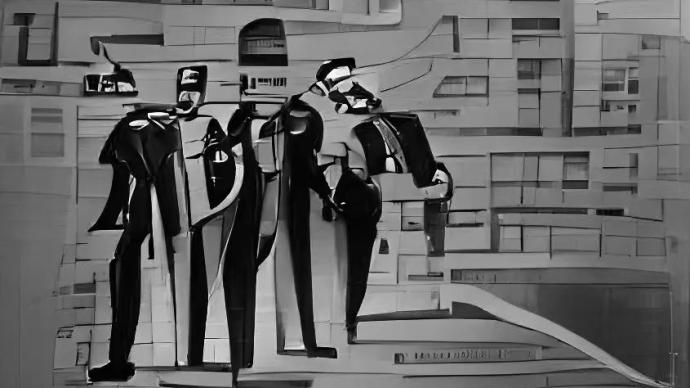
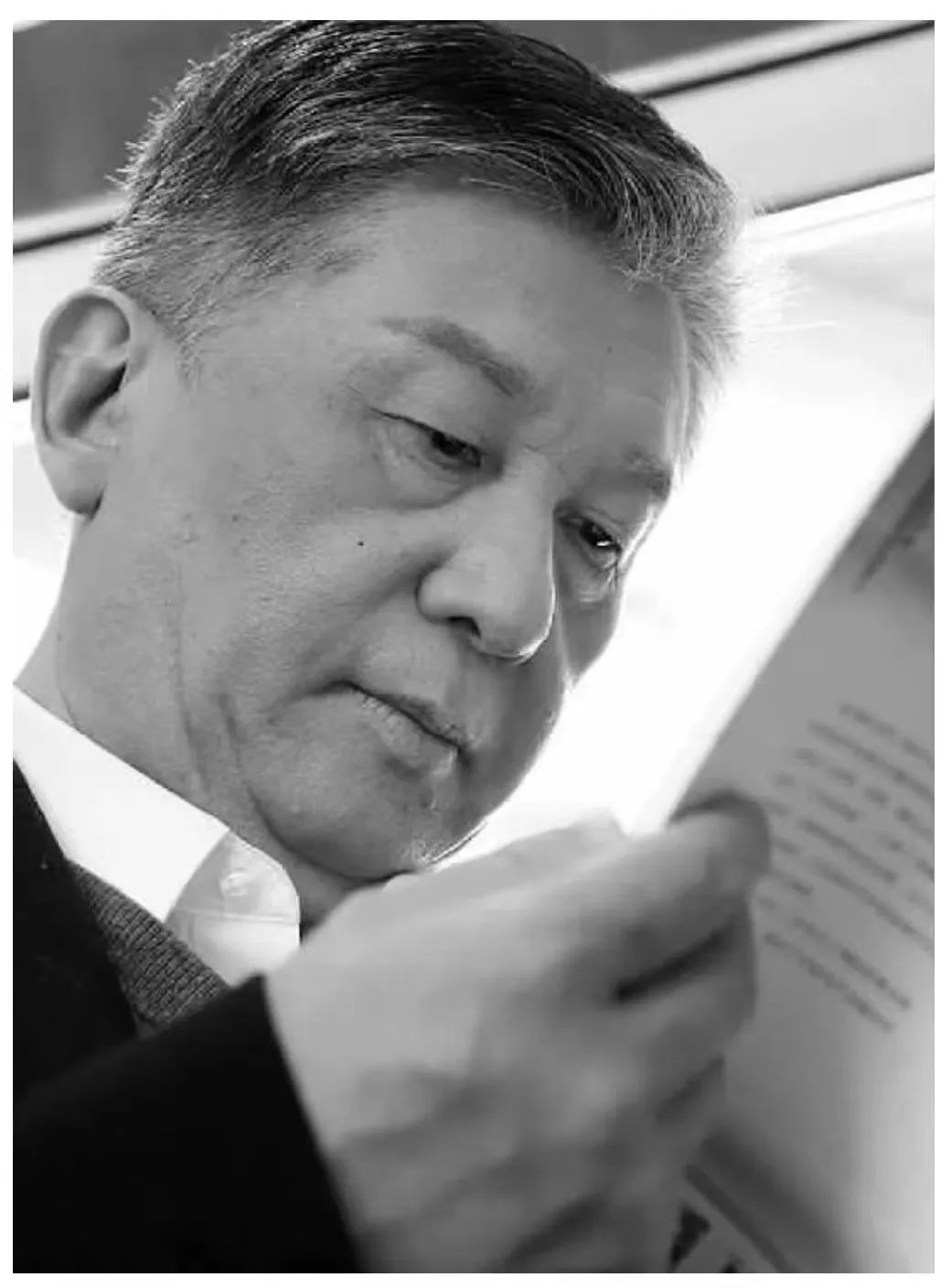
writer sun ganlu
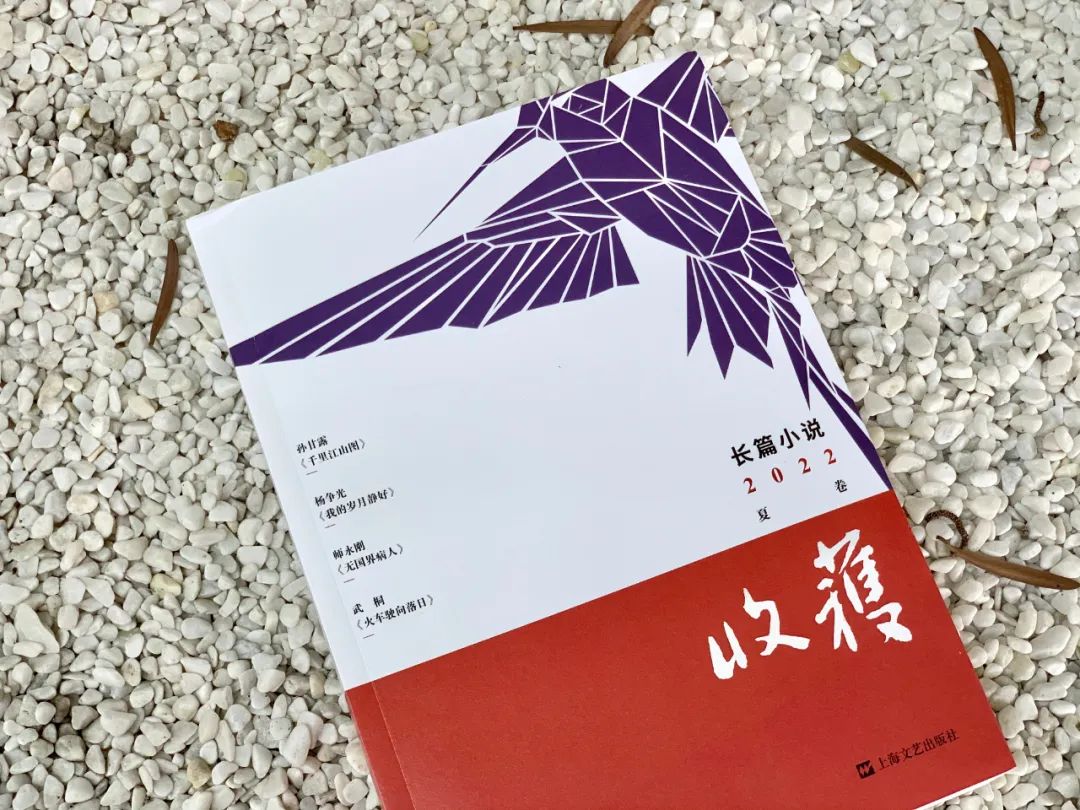
The Harvest Novel Summer 2022
The novel "A Thousand Miles of Rivers and Mountains" by Sun Ganlu"A Thousand Miles of Rivers and Mountains" is the latest novel written by the famous writer Sun Ganlu for many years. Writers look for idealists scattered in the dust of history, and reunite their spirits and flesh: they are fathers, lovers, and brothers, they are upstream in the dark and late night, and they are walking in troubled times. In the darkest moment, the flesh faces the steel blade of life and death, what a person wants to see, what kind of person he will become. The map of a thousand miles of rivers and mountains is handed down from time to time, it is the joint password, it is the code name of the mission, and it is also a love letter to the land under our feet written with life - "The only thing we love is the place where we used to be, even if no one remembers us in the future, this It’s the only place we’re willing to give everything for it.”
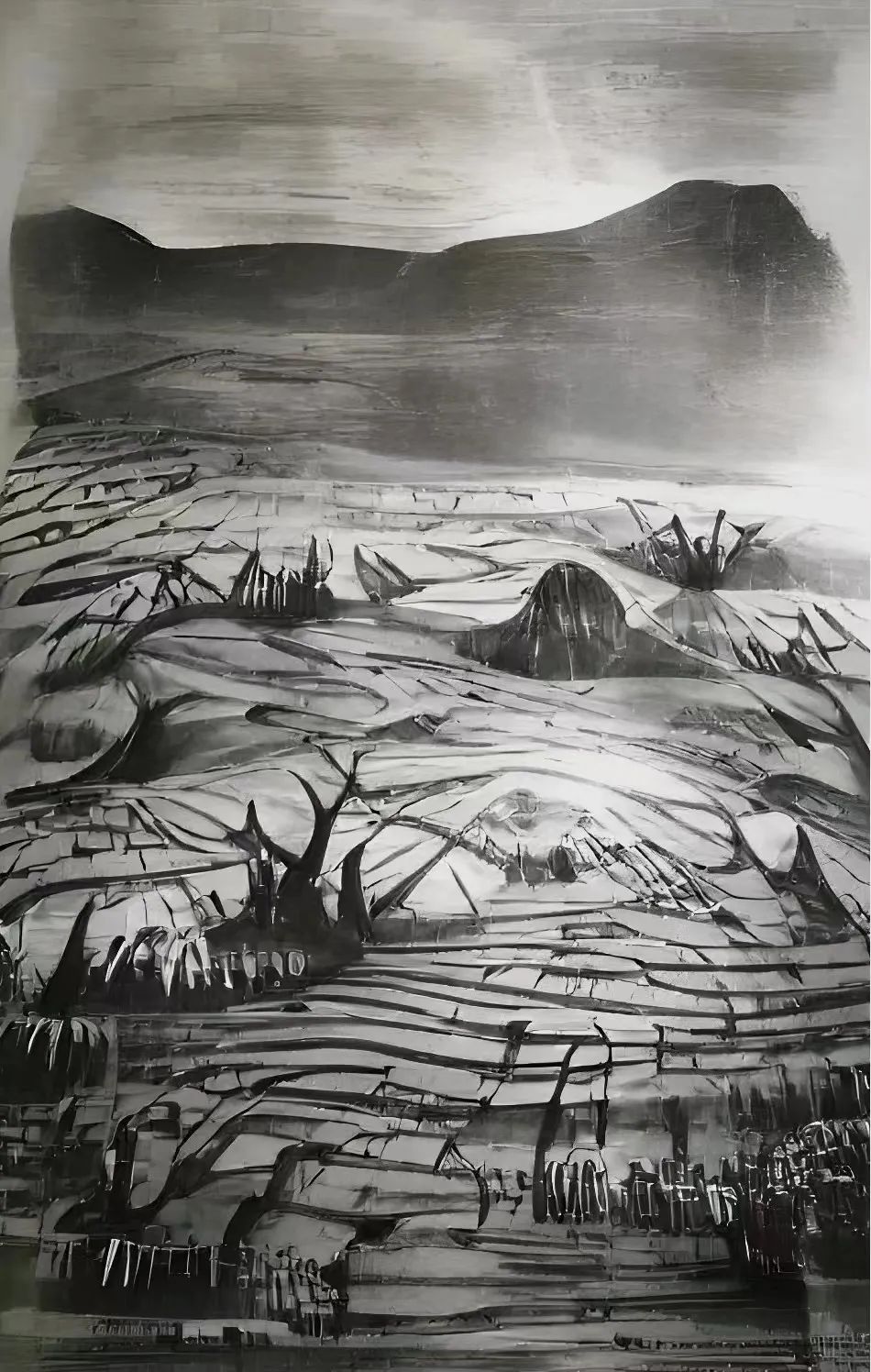
Illustration of "A Thousand Miles of Rivers and Mountains"
The genesis of a novel:On "A Thousand Miles of Rivers and Mountains"
hair tip
espionage
"A Thousand Miles of Rivers and Mountains" is a book we have been waiting for from the last century to this century. This book happened like a spy war. When we heard this topic for the first time at the dinner table, Sun Ganlu allowed us to gallop on the novel. Eating braised pork, everyone imagined that this novel should have a green chapter and a green chapter, both separate and interactive, just like Sun Ganlu's past lingering: it is both here and abroad; it is a teenager, and it is also Qin E.
Later, at an event, Sun Ganlu revealed that the occurrence of "A Thousand Miles of Rivers and Mountains" was related to painters Xu Lei and Sun Liang. Influenced by Xu and Sun, he also likes to go to museums to see various exhibitions. When everyone meets, they often talk about paintings, so he has an imagination about Wang Ximeng.
A few years later, the media described that the novel was about "A Thousand Miles of Rivers and Mountains" and a man. The general idea is that after missing the most precious feelings in life, a man rediscovers the meaning of women, family, and nation to a Chinese.
Time is rushing, and everyone has their own imagination for Sun Ganlu's "A Thousand Miles of Rivers and Mountains". When friends gather and see Teacher Sun, they will ask, "A Thousand Miles of Rivers and Mountains" is coming soon. Teacher Sun always smiles. Anyway, in Shanghai, when it comes to "A Thousand Miles of Rivers and Mountains", the person directly related is no longer Wang Ximeng, but Sun Ganlu.
Then, in 2021, in the introduction of the key book published by the Shanghai Literature and Art Society, the introduction style of "A Thousand Miles of Rivers and Mountains" will change, which is roughly as follows: This book uses delicate daily descriptions to contrast the thrill of struggle, and reflects beliefs with the calm devotion of intellectuals. The powerful inspiration of the novel, writing the vastness and vastness of history with exquisite and comfortable stories, exploring the various possibilities of thematic narrative in a more literary way, creating a new paradigm for important novelists to write major themes, and elevating the theme narrative to a brand-new Art height, so as to use a more literary way to show the thrilling, generous and tragic history of the historical process on a deeper level, highlighting the flower of youth blooming in the revolutionary torrent and the spiritual monument built with the original intention.
At first glance, I was a little confused. "A Thousand Miles of Rivers and Mountains", shouldn't it be about the green Wushan, the spring breeze ten miles? Using Sun Ganlu's own rhetoric, shouldn't it be a kind of comfort to the readers who are waiting to feed, using a flowing water that is slower than slow? How did it suddenly become a Thousand Miles of Rivers and Mountains Action by the CCP's underground organization in 1933?
ability
The original "A Thousand Miles of Rivers and Mountains" was actually left in the final "A Thousand Miles of Rivers and Mountains".
Check out the novel with two male protagonists. Chen Qianli and Yi Junnian met for the first time. Chen Qianli was dispatched by the CCP to Shanghai to restart the "Thousand-Li River and Mountains Project". Yi Junnian appeared as an underground party member of the CCP, and his cover identity was the owner of a calligraphy and painting shop. As soon as they met, Yi Junnian told Chen Qianli a story.
There is a big collector in Shanghai, Mr. Jin, who wants a picture of Qiu Ying. Finally one day, someone will bring a picture of Qiu Ying to the door. Mr. Jin invited experts to appreciate it together. I didn't realize it, and after some expert observation, the conclusion is: fake painting. Mr. Jin had no choice but to see off the guest. But Mr. Jin felt that something was wrong and asked his servants to follow him out. The servant came back and reported that the expert stopped the man on the street outside the door and bought Qiu Ying alive and dead. Mr. Jin was furious and threw the words to the expert, either...or...
After listening to the story, Chen Qianli said that the painting was fake. Yi Junnian threw away the cigarette butt and said, yes, the expert drew it himself.
The two of them made contact.
This story is the core of the novel. It not only established the infernal relationship between Chen Qianli and Yi Junnian, but also established the direction of the "Thousands of Miles of Rivers and Mountains Plan". However, this incident happened not long after the beginning of the novel, and the readers were still ignorant, thinking that it was a "Smile Forest Guang Ji" misappropriated by Sun Ganlu. It was only after the end of the whole book that they could understand that this story was a metaphor. I can't spoil it.
All great novels are like that. Grass snake gray line, foreshadowing thousands of miles. Just like Austin wants to directly announce the theme and ending of the story at the beginning of "Pride and Prejudice": Every rich bachelor will always marry a wife.
Thousands of miles
When Chen Qianli appeared, he was like a rich bachelor. When he first appeared in the novel, wearing a thick woolen coat with a fur collar and Pang Qingxiu, he looked as good as Sun Ganlu himself when he was young.
Theoretically speaking, although Sun Ganlu of the pioneer era seldom described the appearance of characters in his novels, always, starting from the first sentence of his novels, "If anyone opens my door at this moment, they can see My window is open. I am lying in front of the window. At this moment, the silhouette I have drawn for the sunset cannot be treated with a humorous attitude" ("Visit Dreamland"), and the reader is ready to meet Mr. Qianmo. And these men in the dream, their gestures, are always wind-like argotists and recluses ("The Messenger's Letter"). These men ("As if"), who are either nameless or have the name of "seasonal flowers", constitute the largest island of avant-garde novels, and Sun Ganlu also invented a "language of the night" for China. His protagonist climbs mountains and mountains in a dream, but in reality, he does not move a single step, and is always the image of "looking at the scenery from the window" ("I am a young wine jar").
Therefore, Sun Ganlu's tense is too empty, and the relationship between words is as thin as a gossamer. All the protagonists have gradually evolved from "dreamers to dreamers" ("Ask a Woman to Guess the Riddle"). They are in "the straw mat is like water, In the story of "The Crock Pot Is Like Ice", with a reverie tone, "it gives people a sense of surprise and joy". These handsome young men, these fisherman heroes, who "go down the river" ("I am a Juvenile Wine Jar"), have become the most charming family in the contemporary novels of the 20th century. They have their backs to the reader, and we are content to see only their backs. In short, the dream is the main scene of Sun Ganlu's novels, and the back is the main gesture of the characters.
Then, the century turned, the man turned around.
This man not only has a real name, but also has a proven history, organizational relationships, brothers and girlfriends, and a century of experience. This man, everything he did was transitory, loud, and entered into history.
His name is Chen Qianli. Thousands of miles of rivers and mountains.
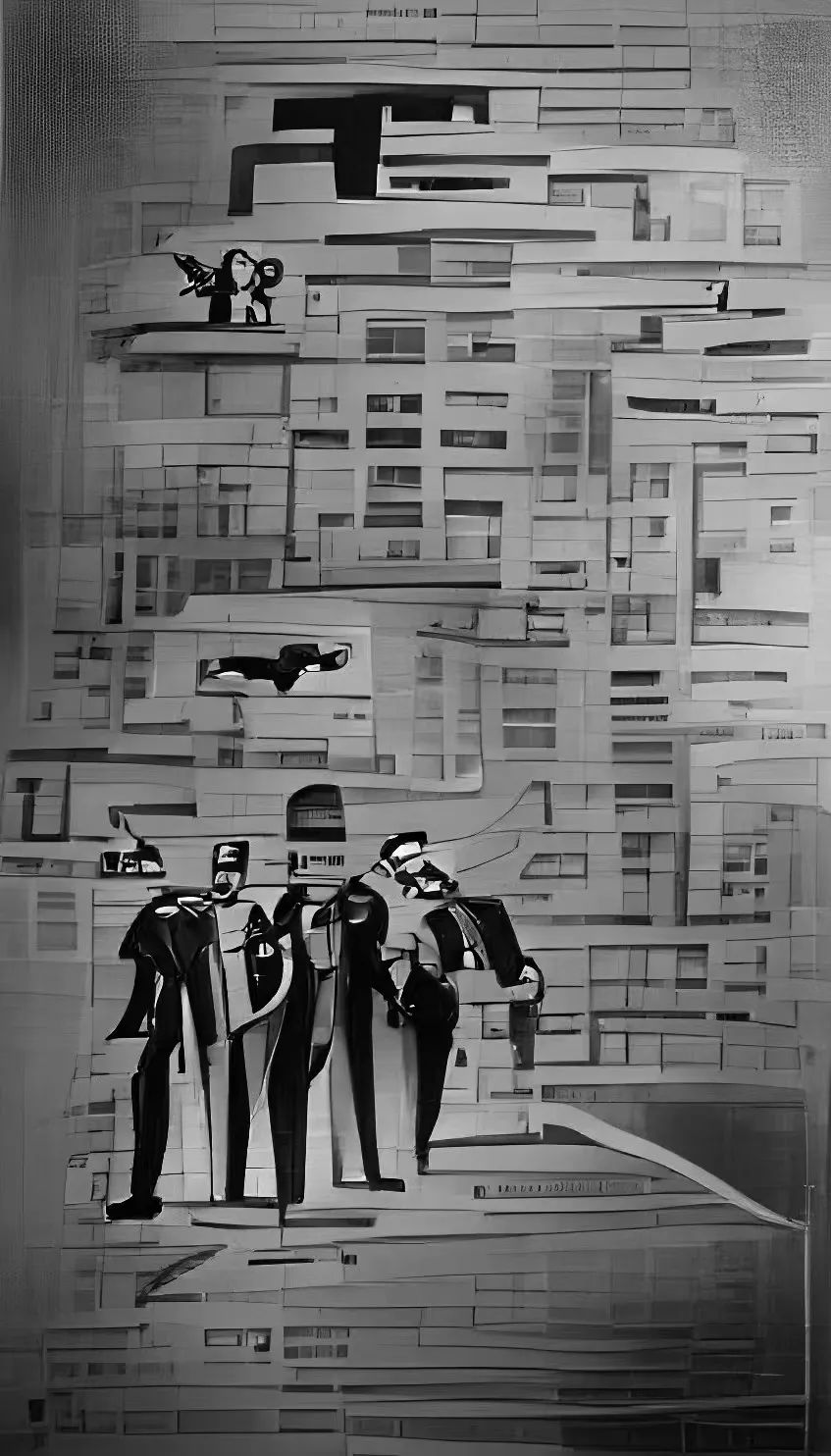
Illustration of "A Thousand Miles of Rivers and Mountains"
countryA Thousand Miles of Rivers and Mountains is a famous Song painting, it is the connection code of Chen Qianli, it is the mission code of the Shanghai Action Team of the CCP underground organization, and it is also the MacGuffin of this novel.
McGuffin is Hitchcock's main grammar. In almost all of Hitchcock's films, there is a McGuffin, big or small. From his early "The Landlord", "The Ring" and "Extortion", all the way through "The Beauty", "Vertigo" and "Psycho", to the later "The Thief" and "The Curious Case", Hitchcock used McGonagall Finlay draws the audience's attention, such as the Nazi uranium sand in "Beauty's Plan" and the microfilm in "North by Northwest", these devices form the narrative momentum of the film, pushing the protagonist all the way forward, and the audience follows Cary Grant all the way. Okay, through conspiracy and love, life and death and betrayal, in the end no one cares about the uranium sand or the film itself, and everyone is more than happy to watch Cary Grant cross mountains and seas while falling into a relationship with Ingrid Bergman or Eva The lingering of Mary Saint.
The "A Thousand Miles of Rivers and Mountains" in "A Thousand Miles of Rivers and Mountains" is also set in this way in terms of functional relationship. At the beginning of the novel, eleven underground party members on different fronts, each carrying a few dominoes, set off from all directions in Shanghai, entered a secret meeting point near the vegetable market, and waited for the dice-carrying person to assign them a task, that is, "a thousand miles". "Jiangshan Map Project". Ten leads, including spies and hidden traitors, go hand in hand and are incredibly beautiful. Then, the Thousand Mile Plan, which was interrupted by the spy in the first section of the novel, became the narrative McGuffin, and until the end of the novel, the entire plan was unclear. What we have seen is that under the strong surveillance of internal and external agents, Chen Qianli led the action team and re-entered the plan with determination. Unlike Hitchcock, "Thousands of Miles" has only Jiangshan and no romance.
Originally, the revolutionary theme did not constitute Sun Ganlu's writing resume, but it was easy for Mr. Sun to write this story into a picture of a beautiful woman in the country. The amazing thing is that Sun Ganlu immediately became a Buddha and dropped all the past equipment, all the love and love in the past, and his new male protagonist walked the country at a completely different speed and went upstream. This is a newcomer in the history of Sun Ganlu's fiction, a melancholy avant-garde fiction poet who has suddenly become a giant of verbs.
verb
It was the first time that I read so many verbs in Sun Ganlu's novels.
His previous novels were very slow, with few actions and few verbs. This time, he used all the verbs he would use all his life, and at high speed. The entire text, short sentences and paragraphs, are short and smooth, with an average of ten words and one verb. When the characters appear, they are all concise and direct. For example, "Lao Wei is standing on the edge of the upper street, holding a cigarette case in his hand, and he seems to be about to take it apart. Seeing him stop what he was doing, he raised his head and looked ahead, as if he suddenly saw something." Whether it's our side or the enemy's special agent, apart from being injured, he almost never took a break in the novel. The word "fast" appears 87 times. "Withdraw", 54 times.
In the history of Sun Ganlu's writing, such writing itself can almost be called "simple", but this way of writing is a mysterious moment in the history of literature. In other words, the moment when the verb is running at a high speed is the turning moment in the history of literature. Robinson came to the desert island and established a new order of life for himself with a series of consecutive actions:
The next day I went to my so-called country house and cut down some small branches, which I found were exactly what I was trying to achieve. So the next time I came, I prepared a hatchet to cut down a lot of branches, and I immediately found out that there are many such branches here. I erect them to dry in my ring fence, and when they are dry enough to use, I bring them back and put them in the cave, and when the next season comes, I sit in the cave to make myself as much as possible Weave some baskets to hold soil or hold some temporary items. Although I don't make it beautifully, it is very applicable. After this, I noticed that I didn't leave the house without baskets, the old ones were worn out, and I made new ones, especially I also made a big strong and deep basket, ready for when I received a lot of grain. Come to put food, no more bags. (Defoe, "Robinson Crusoe")
In "Sister Carrie", when the first generation of foreign girls and Bai Xiangren debut, it is also a verb flying:
When he went to the department store, he always liked to lean on the counter and chat with the female clerk like an old acquaintance, asking some kind of questions. If it is an occasion with few people, such as on a train or in a waiting room, he should slow down the speed of chasing people. If he finds a guy who looks like he's ready to go, he does everything he can - say hello, lead the way to the living room car, help with suitcases. If you can't carry a suitcase, take a seat next to her and hope that before you reach your destination, you will be able to show her hospitality: get the pillow, deliver the book, set the ottoman, put the curtain. That's all he can do. If he didn't get out of the car to help her with her luggage when she got to her destination, it was because, in his estimation, his pursuit had clearly failed.
Literary newcomers appear, often with such verbs and word frequencies. The same is true of our literary history. The opening of "Jin Ping Mei" and the opening of Jin Yong are all non-stop linking verbs, opening a new rhythm. Or, to borrow Moretti's analysis, this moment of turbulent verbs, "is not only the beginning of a new period, but the beginning of such a beginning—where the structural contradiction that will never be overcome has a visible form." ( Moretti "Bourgeois" (translated by Zhu Kang)
This insurmountable structural contradiction, in a large number of revolutionary novels or Hitchcock's spy movies, has always used love to reward sacrifice, and used the highest form of passion to support career ethics. For example, in "Song of Youth" , configure Lu Jiachuan and Jiang Hua for Lin Daojing. For example, in "Beauty", Cary Grant is presented to Ingrid Bergman.
However, "A Thousand Miles of Rivers and Mountains" gave up love.
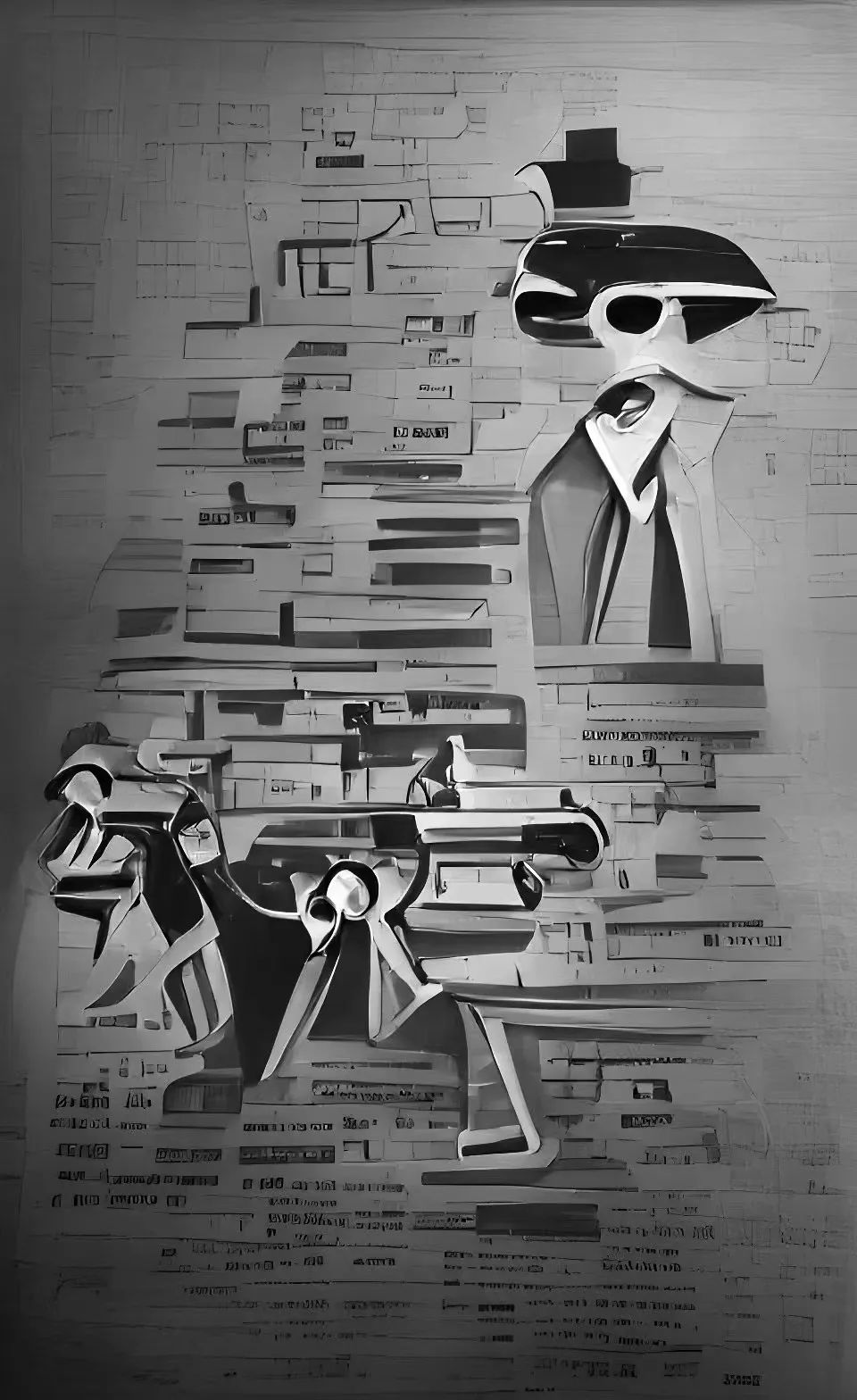
Illustration of "A Thousand Miles of Rivers and Mountains"
sacrificeLove is Sun Ganlu's main invention. Among contemporary writers, he is also a well-deserved chief love poet. However, in the 180,000-character "A Thousand Miles of Rivers and Mountains", the word "love" never appeared. Although there are several couples of young men and women in the novel, Sun Ganlu did not give them time to fall in love.
When the underground party members appeared on the scene, they were arrested collectively, and the spy chief was brave enough to release them all and prepare to go fishing. The underground organization needs to screen out the traitors, and at the same time complete the transfer of funds for the "Jiangshan Project" and the transfer of thousands of miles by the central leadership under the eyes of the spy. The spy organization led by Ye Qinian has personal and public grievances with Chen Qianli. The enemy is neither vegetarian, but cruel. This is a battle of faith.
In the novel, the word with the highest frequency is "sacrifice", 93 times. Essentially, this is also a novel about sacrifice. Not to mention all kinds of sacrifices, not to mention sacrifices in other time periods, just for the implementation of this "Jiangshan Map", the famous victims include the leader of the CCP Shanghai District Lao Fang, the female cadre Ling Wen, and the Central Committee. Commissioner Lin Shi, along with Chen Qianyuan, Dong Huiwen, Li Han, Tian Fei, Qin Chuan'an, Liang Shichao and Wei Dafu who died together in Longhua Prison on April 4, 1933. At the last moment, Wei Dafu had a chance to escape, but in order to ensure the success of the operation, in order to put the bait directly into the mouth of the enemy, he smiled and refused to survive.
These people are very young. Chen Qianyuan and Dong Huiwen are still lovers, and they haven't had time to say "I love you" to each other. They entered this special program, no one shouted a slogan, no one said a big word, and they handed over their lives, just as the Chinese New Year in 1933 came, naturally. How did Sun Ganlu construct this kind of passion that is more courageous than love and a more majestic form than love in the text?
Shanghai
Each form, Lukacs says, is a solution to life's fundamental dissonance. "A Thousand Miles of Rivers and Mountains Project" is such a form. In the whole novel, there is no special explanation for this plan, but Sun Ganlu very powerfully outlines the situation in 1933 in one sentence and what the underground organization of the CCP wants to protect.
Chen Qianli was waiting for Yi Junnian to meet at the Carlton Theatre. In those days, Carlton was performing the opera "Turandot", and the poster had two texts in Italian and Chinese, which read: In Turandot's hometown, the executioner is always busy. This is a sentence in the opening chorus of "Turandot", and Sun Ganlu wrote: "I don't know what the person who made it specifically picked out this sentence." There are many such intertextual moments throughout the novel, especially in Yiyi In the scene where Junnian appeared. Yi Junnian met Ling Wen for the first time. In the bookstore, Ling Wen picked up a novel and wrote: "She knows this novel, and a few days ago, she saw Mr. Lu Xun's introduction to it in a magazine. "February", she remembered the title of the book, there was a widow in the book, and her husband died in battle." Ling Wen didn't understand what the woodcut pattern on the cover of the novel meant. The man next to him, Yi Junnian, was in The side said, "Don't you see it? It's a river with leaves, rain and many faces floating on the river."
There are as many executioners floating in Shanghai as there are Chen Qianli running. And just as Chen Qianli and others were running intensively, the map of Jiangshan really unfolded. Sun Ganlu not only revitalized many scenes in Shanghai back then, but more importantly, thanks to his early career as a postman, Shanghai unfolded like a documentary in a novel. The institutions, place names, and events can all be fixed by history. Even the line of the courtesan, "Do you know Xu Zhenya? He danced with me" can be verified.
Chinachem Hotel on the Bund, World Hotel, Sima Road Market, North Sichuan Road and Bridge, Post Building, Nanshi Old Town, French Concession Public Management Office, Happy Horse Club, Public Welfare Square, Gujiazhai Park, Tianjin Road Zhonghui Trust Bank, Maochang Coal No., Factory Sauce Garden, Zhaojiabang, Xiaomuqiao, Zhujiajiao Town, Dianshanhu District, Zhuhu County Road... The novel involves hundreds of place names, all of which can be marked on the map. When these place names are gathered together, Shanghai has its own facial features and limbs. The Shuimo Bookstore and Xinken Bookstore that Lu Xun, Feng Xuefeng and Chen Geng went to, the Hongyuan Garden that Sun Yat-sen visited, and the Zhejiang Grand Theater with the poster of "Overseas Cuckoo Soul". The Great Bright Theater with the head portrait of Marlene Dietrich, this is the Shanghai of Chen Qianli, Chen Qianyuan, Dong Huiwen, they want to protect the streets and alleys of this city, and protect the pickles, assorted vegetables, and lion heads in this world. They want to run in front of the agents to shield the world from the wind and rain, and their love for this city makes them not hesitate. In the end, when the Shanghai love letter they wrote in the flesh slowly appeared, we burst into tears: "We don't expect to be reunited in another world, the only thing we love is the place where we used to be, even if there is no one in the future. Remember us, it's the only place we're willing to give everything."
This is the highest form of love. Overcome all contradictions. Create the lightest structure in weight.
light and easy
Calvino said in the "Memorandum of Literature for the Next Millennium": I am committed to reducing the sense of heaviness, the heaviness of people, the heaviness of celestial bodies, and the heaviness of cities. And first, I worked on reducing the heaviness of the story structure and language.
In Ovid's "Metamorphoses", in order not to let the rough sand damage Medusa's head covered with small snakes, he used soft leaves to cover the ground, and added a layer of underwater plants on top of it. the twig, before putting Medusa's head down, face down. Calvino thought the lightness that Perseus represented as a hero was refreshing. Only in this way can the incredible miracle happen: the soft seagrass turns into coral and narcissus as soon as it touches Medusa.
In the whole "A Thousand Miles of Rivers and Mountains", the most admirable thing is the lightness of this Perseus nature. Sometimes it is ironic. For example, in the speed of life and death in the pursuit of escape, Cui Wentai took a piece of pork beside the cold storage freight elevator to cover his face, and the escape in this section ended with this sentence: "When I ran to the bottom, I suddenly thought, Fang wouldn't think I took advantage of the chaos to take a pork pie, right?" Sometimes it's restraint. For example, Chen Qianli was sent to Shanghai to restart the "Jiangshantu Project". One of the offline people was called Chen Qianyuan, and when the brothers met, just one sentence, "How are Mom and Dad?" Then go straight to work. All misunderstandings, entanglements, tears, and tears in bad novels have been emptied. Although Ye Tao has a father who is a spy chief, she is not constrained by family ethics for a moment. The love between her and Chen Qianli is as bright as that time, using Nekrasov: They say that the storm is coming, I can't help but smile. That's all, no other lyric. Just like every sacrifice in the novel, it also ended quickly. In the end, Chen Qianli watched his younger brother and his comrades sail towards the enemy. The novel ended in one sentence: Chen Qianli turned on the boat again, wiped the water from his face, and looked away. Glancing at the cabin, he ordered the boatman to turn the ferry towards the Suzhou River.
Don't say anything more. The songs of history will automatically make up for the tears. Just like many years later, when the reporter mentioned that Ye Qinian, the former spy chief, still claimed that Chen Qianli shot his daughter Ye Tao in a Hong Kong magazine in the 1960s. Chen Qianli only said four words: Ye Tao is clear.
Ye Tao is clear. Readers know. The Republic is clear. Thousands of miles of rivers and mountains are clear.
(This article is transferred from the "Harvest" WeChat public account, and the full text was first published in the "Harvest" novel 2022 Summer Volume)
Related Posts